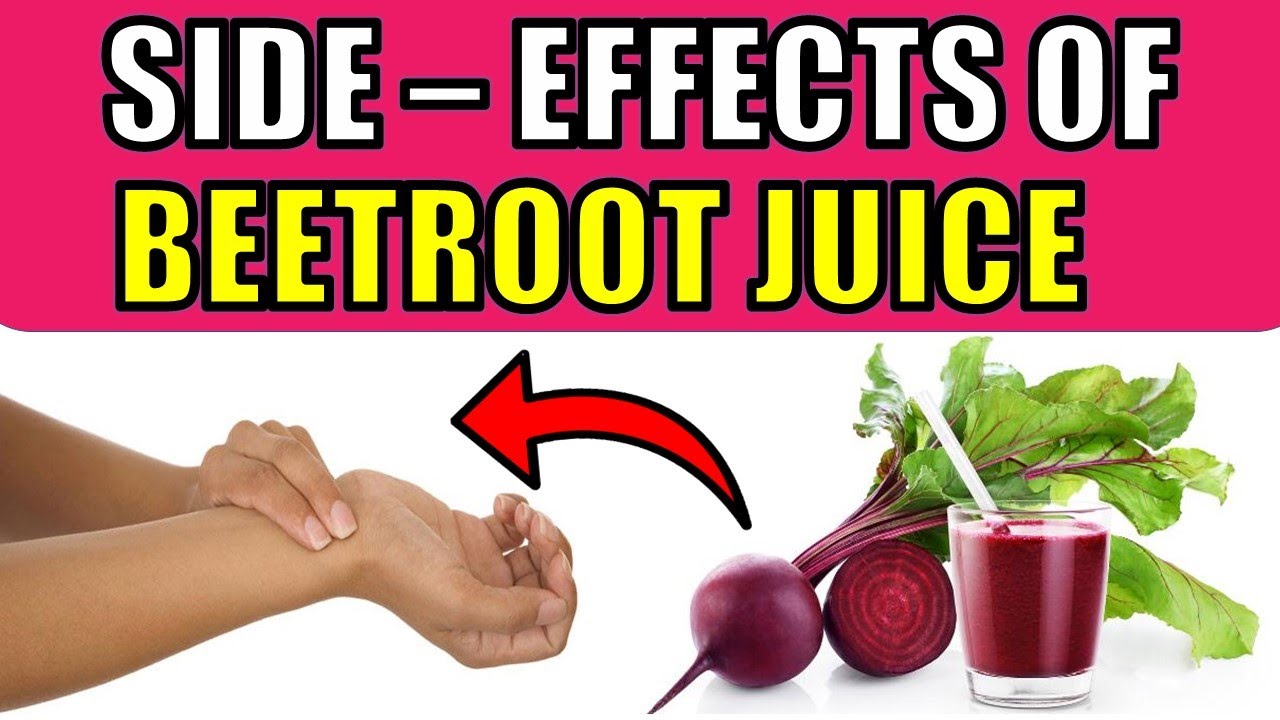Beetroot Juice Disadvantages
Beetroot juice, celebrated for its nutrient density and health benefits, is a popular addition to wellness routines. However, while moderate consumption is generally recognized as safe, there are notable beetroot juice disadvantages that may impact certain individuals. This guide delivers an in-depth look at the potential side effects, safety warnings, and who should avoid or limit beetroot juice.

Common Beetroot Juice Disadvantages
1. Beeturia: Red Urine and Stool
A benign yet startling side effect, beeturia refers to the passage of pink or red-colored urine or stool after consuming beetroot juice. While generally harmless, its presence may confuse individuals or mask other underlying conditions.
-
Prevalence: Occurs in around 10–14% of people.
-
Risk Factors: More common in those with iron deficiency or low stomach acid.
2. Kidney Stone Risk from Oxalates
Beetroot juice is notably high in oxalates—a compound that can contribute to the formation of kidney stones, particularly for those predisposed to oxalate stones.
-
High Oxalate Content: May worsen conditions in individuals with a history of calcium oxalate stones.
-
Recommendation: People with stone risk should minimize intake and consult a physician.
3. Hypotension (Low Blood Pressure)
Beetroot juice can significantly lower blood pressure due to its natural nitrate content, which converts to nitric oxide and relaxes blood vessels.
-
For Hypotensive Patients: Might exacerbate symptoms of dizziness, lightheadedness, and fainting.
-
Warning: Pregnant women and those on antihypertensive medication should monitor intake.
4. Allergic Reactions
Beetroot juice may trigger allergic reactions in sensitive individuals. Symptoms range from itching and rashes to more severe anaphylactic responses (rare).
-
Signs to Watch: Hives, swelling, breathing difficulties.
-
Advice: Discontinue consumption and seek medical help if any allergic symptoms appear.
5. Gastrointestinal Disturbances
Rapid introduction or excess consumption of beetroot juice can cause digestive discomfort such as:
-
Bloating
-
Stomach cramps
-
Diarrhea
-
Flatulence
These symptoms are typically dose-dependent and resolve with moderation.
6. Blood Sugar Fluctuations
Despite a lower glycemic index, beetroot juice still contains measurable natural sugars that may impact blood glucose levels, especially in diabetic patients.
-
For Diabetics: Monitor blood glucose when incorporating beetroot juice into the diet.
7. Interaction with Medications
Components in beetroot juice may interact with certain medications:
-
Antihypertensives: Potential additive effects may cause excessive blood pressure drops.
-
Anticoagulants (Blood Thinners): Beetroot contains vitamin K, which can affect INR control when taken alongside these medications.
-
Consultation Recommended: Always inform your healthcare provider of new dietary additions.
Who Should Avoid or Limit Beetroot Juice?
-
Individuals with kidney stone history (oxalate sensitivity)
-
Those with chronic low blood pressure
-
Pregnant and breastfeeding women (safety not fully established)
-
Persons with known allergies to beets or their components
-
People on blood pressure or blood thinning medications
Frequently Asked Questions about Beetroot Juice Disadvantages
Is it dangerous for everyone?
No. Most healthy adults can enjoy beetroot juice in moderation, but those with the listed risk factors should exercise caution.
Can beetroot juice cause urinary tract infection?
No direct evidence links beetroot juice to UTIs, but beeturia may be mistaken for blood in urine.
How much is too much?
Safe daily consumption generally ranges up to 250ml for healthy adults. More may increase the risk of side effects.
Does cooking beetroot lower the risks?
Cooking reduces oxalate content, making it a safer alternative for those concerned with kidney stones.
Weighing the Risks and Benefits
While the nutritional virtues of beetroot juice are well supported, understanding its disadvantages ensures safer use. Those considering beetroot juice for health or performance should evaluate their individual risk factors, consult healthcare professionals if needed, and always prioritize balance and moderation for optimal safety in their wellness journey.